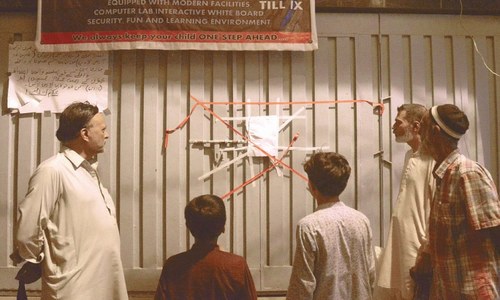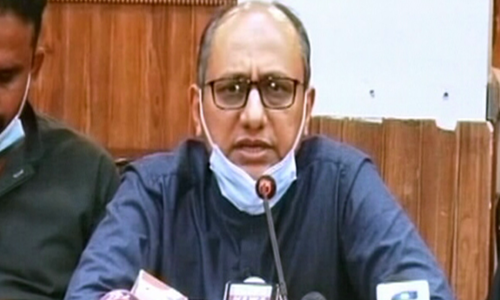Sindh Education Minister Saeed Ghani on Sunday said that schools in the province will only be allowed to call 50 per cent of students at a time in line with the standard operating procedures (SOPs) laid down by the government to curb the spread of Covid-19.
While addressing a press conference, Ghani said: "On one hand, the federal minister for education is announcing that [schools will be permitted to call] 100pc of the students and on the other hand, he is also asking for the implementation of SOPs [...] It is not possible to call 100pc of the students together."
Ghani further said that implementation of SOPs will not be possible with 100pc of the students in attendance and maintaining social distancing will become hard.
He acknowledged that the number of infections had decreased over the past few weeks, but stressed that the virus has "not been completely eradicated".
"Until it (Covid-19) is completely eradicated, educational institutions will continue to follow SOPs and allow only 50pc of [students] in a day," he declared.
Ghani was referring to an announcement by Federal Education Minister Shafqat Mahmood saying that the restrictions imposed on schools in some major cities to conduct three-day classes in a week were removed.
The federal and provincial governments had in a meeting at the National Command and Operation Centre (NCOC) last month allowed educational institutions to reopen as per their routine, but schools in four urban centres — Karachi, Hyderabad, Lahore and Peshawar — were allowed to open schools only three days a week.
However, the federal education minister on Thursday announced that such restrictions in these cities had been lifted and they were now allowed to hold regular classes. “Important announcement. All schools will go back to regular 5 day classes from Monday March 1. Restrictions imposed in some major cities on schools to conduct staggered classes was only till Feb 28,” Mahmood tweeted.
In today's press conference, Ghani also outlined the provincial government's plans of recruitment and transfers in the education sector, saying that teachers who fulfil the government's criteria will be hired on merit after they appear for a test on a union council level and an interview.
The Sindh government is also working on making the transfer policy more "transparent", Ghani said, adding that three categories have been made in this regard. Transfers have begun across the province in 7,000 schools that have been closed for the past several years due to teacher recruitment restrictions, but the remaining transfers will take place in August after the new academic year, he told reporters.
He said that due to Covid-19, educational institutions had remained closed for the past one year and the provincial government was facing difficulties in recruitment due to non-functioning of Sindh Public Service Commission.















































